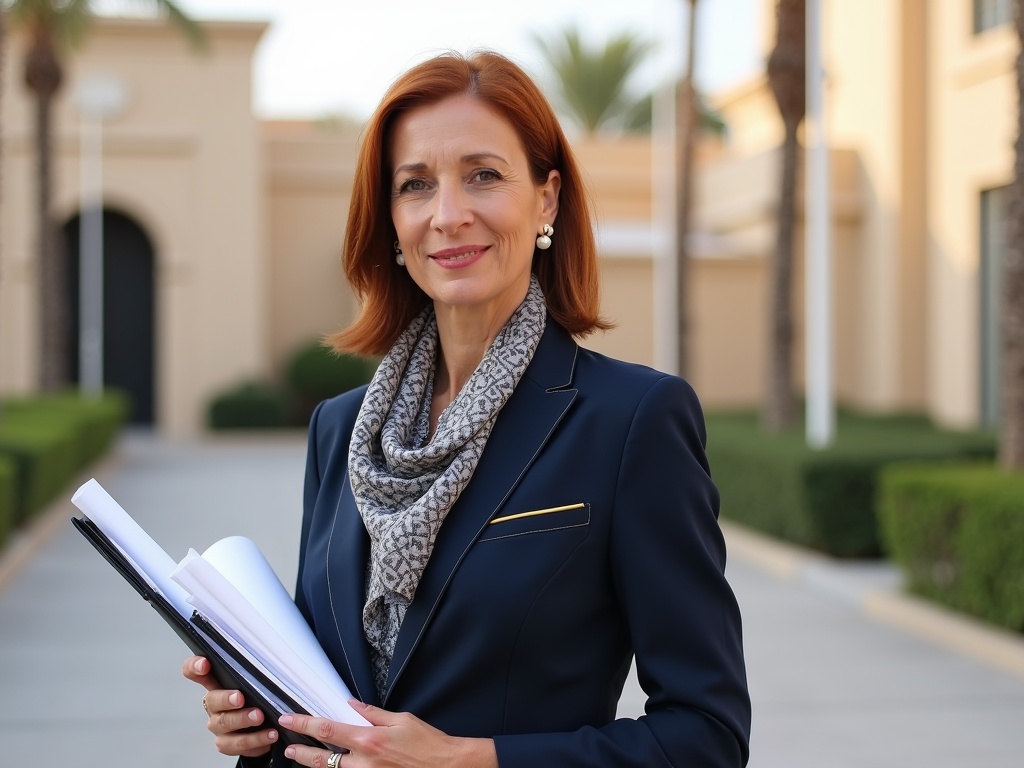
Dubai Freelance Visa: Complete Guide to Costs, Benefits & Application Process in 2024
Reading time: 12 minutes
Table of Contents
Introduction to Dubai’s Freelance Economy
Feeling trapped in the corporate grind? You’re not alone. Dubai’s freelance market is booming, with a 70% increase in freelance license applications since 2020. The appeal is clear: flexible schedules, diverse client portfolios, and the potential to significantly increase your income.
The UAE has responded to this shift by creating structured pathways for freelancers to operate legally. Gone are the days of working in regulatory gray areas. Today’s Dubai offers clear, albeit complex, routes to establishing yourself as a legitimate independent professional.
Let’s cut to the chase: becoming a freelancer in Dubai requires navigating a specific regulatory framework. The cornerstone of this framework is obtaining a freelance permit—essentially your license to operate independently without the traditional employment visa constraints.
Types of Freelance Permits in Dubai
Not all freelance permits in Dubai are created equal. Your optimal choice depends on your profession, budget, and long-term objectives.
Free Zone Freelance Permits
Free zones offer specialized ecosystems for specific industries. Each has its own regulatory framework and cost structure.
- DMCC Freelance Permit: Ideal for consultants, educators, and business services professionals. Comes with a prestigious JLT address.
- Dubai Design District (d3): Tailored for creative professionals including designers, photographers, and artists.
- Dubai Internet City: Perfect for tech professionals, developers, and digital marketers.
- Ajman Free Zone: One of the more budget-friendly options with competitive packages.
- RAKEZ: Offers flexibility across multiple sectors with attractive pricing structures.
Mainland Freelance Permits
Mainland permits offer broader operational scope but typically come with higher costs and more complex requirements.
- DED Freelancer License: Allows you to work directly with government entities and mainland companies.
- Dubai Culture Authority Permit: Specifically for creative and cultural professionals.
- GoFreelance by Tecom: A specialized program covering media, education, and tech industries.
Comprehensive Cost Breakdown
Let’s talk numbers. Understanding the freelance visa dubai cost structure is crucial for budgeting your transition to self-employment.
Initial Setup Costs
| Free Zone/Authority | Basic Permit Fee (AED) | Visa Processing (AED) | Office/Flexi-Desk (AED) | Total First Year (AED) |
|---|---|---|---|---|
| DMCC | 8,200 | 4,750 | 3,500 | 16,450 |
| Dubai Media City | 7,500 | 4,750 | 3,000 | 15,250 |
| Ajman Free Zone | 5,750 | 4,500 | 2,500 | 12,750 |
| RAKEZ | 6,200 | 4,500 | 2,800 | 13,500 |
| DED Mainland | 15,000 | 5,000 | N/A | 20,000+ |
Note: Prices are approximate and may vary based on nationality, specific requirements, and periodic promotions.
Hidden Costs to Consider
The sticker price isn’t the full story. Be prepared for these additional expenses:
- Medical Insurance: Mandatory requirement ranging from AED 700 to 5,000 annually depending on coverage
- Emirates ID: AED 370 for a three-year card
- Visa Renewal: Plan for 80-90% of initial visa costs every 2-3 years
- Bank Account Setup: Minimum balance requirements range from AED 3,000 to 25,000
- PRO Services: If you need assistance with paperwork, budget AED 1,500-3,000
Cost Comparison: Freelance Visa vs. Employment Visa
Step-by-Step Application Process
Navigating the application process requires meticulous attention to detail. Here’s your roadmap:
Pre-Application Preparation
- Profession Verification: Confirm your profession is eligible for freelance permits (most creative, consulting, tech, and educational roles qualify)
- Document Preparation:
- Updated CV/resume highlighting expertise in your field
- Portfolio of previous work (crucial for creative professionals)
- Academic certificates (attested by UAE Embassy in your home country)
- Passport copies with minimum 6 months validity
- Passport-sized photographs with white background
- Bank statements showing financial stability (typically 3-6 months)
- Free Zone Selection: Research and select the free zone most aligned with your profession and budget
Application Submission and Processing
- Initial Application: Submit your application to your chosen free zone authority (increasingly available online)
- Fee Payment: Pay initial application and processing fees
- Preliminary Approval: Receive initial approval (typically within 1-2 weeks)
- Medical Examination: Complete mandatory medical testing at approved centers
- Emirates ID Registration: Submit biometrics for your Emirates ID card
- Visa Stamping: Final visa stamping in your passport
- License Issuance: Receive your official freelance permit
The entire process typically takes 3-5 weeks, assuming all documentation is in order.
Key Benefits and Advantages
The investment in a Dubai freelance permit delivers substantial returns beyond mere legal compliance.
Professional Legitimacy
A freelance permit transforms you from a casual freelancer to a recognized business entity:
- Corporate Bank Account: Access to UAE’s sophisticated banking system with international transfer capabilities
- Legal Invoicing: Issue legally valid invoices to UAE entities and international clients
- Contract Legitimacy: Enter into enforceable contracts with larger organizations
- Visa Sponsorship: Ability to sponsor dependents (spouse, children) under certain conditions
Financial and Lifestyle Benefits
The financial structure offers compelling advantages:
- Tax Efficiency: Operate in the UAE’s 0% personal income tax environment
- Multiple Revenue Streams: Work with multiple clients simultaneously without contractual restrictions
- Residence Benefits: Access to UAE healthcare, education systems, and property ownership options
- Geographic Freedom: Serve clients globally while maintaining UAE residence
Common Challenges and Solutions
The freelance journey in Dubai isn’t without its hurdles. Here’s how to overcome the most common ones:
Financial Management Challenges
Challenge: Irregular income patterns combined with fixed permit costs create cash flow pressures.
Solution: Create a dedicated “permit renewal fund” by setting aside 10% of each payment. Many freelancers open a separate savings account specifically for regulatory expenses, ensuring they’re never caught short when renewal time comes.
Example: Sarah, a digital marketing consultant, established a quarterly financial review process. She allocates 10% of earnings to a dedicated “business expenses” account and maintains a six-month emergency fund to cover lean periods. This system allowed her to comfortably handle her DMCC permit renewal despite experiencing a temporary client reduction.
Client Acquisition in a Competitive Market
Challenge: Standing out in Dubai’s saturated freelance marketplace.
Solution: Leverage your permit status as a competitive advantage. UAE companies often prefer working with properly licensed freelancers to avoid regulatory complications. Create marketing materials that highlight your legal status, and consider joining free zone networking events to connect with potential clients seeking legitimate freelance partners.
Expert Tip: “The freelance permit is more than a regulatory requirement—it’s a powerful business development tool. Our research shows that properly licensed freelancers command 20-30% higher rates and experience 40% longer client retention.” — Mahmoud Al-Khatib, UAE Freelance Association
Real-World Success Stories
Theory is valuable, but practical examples illuminate the real-world impact of strategic permit selection.
Case Study 1: Tech Consultant’s Journey
Profile: Ahmed, a software developer specializing in fintech solutions
Permit Choice: Dubai Internet City Freelance Permit
Investment: AED 18,500 initial setup (including visa)
Outcome: Within 6 months, Ahmed secured contracts with three UAE-based financial institutions who specifically required freelancers with legal status. His permit costs were recovered within the first two months of operations. After 18 months, he was billing an average of AED 45,000 monthly—a 60% increase from his previous employment salary.
Key Insight: “The networking opportunities within Dubai Internet City were game-changing. Being able to attend member events and access the community directly led to my biggest client relationships.” — Ahmed
Case Study 2: Creative Professional’s Transformation
Profile: Elena, a graphic designer transitioning from full-time employment
Permit Choice: Ajman Free Zone Freelance Package
Investment: AED 13,000 (budget-friendly option)
Outcome: Elena chose Ajman for its lower cost structure while building her client base. Though initially concerned about the free zone’s location, she discovered that clients cared more about her legal status than her specific free zone. After operating successfully for one year, she transferred to Dubai Design District as her business matured, bringing established clients with her and leveraging d3’s creative community.
Key Insight: “Starting with a more affordable permit allowed me to test the market without overcommitting financially. The ability to upgrade later gave me flexibility while I established my client base.” — Elena
Future-Proofing Your Freelance Career in Dubai
The freelance landscape in Dubai continues to evolve. Position yourself advantageously with these forward-looking strategies:
Upcoming Regulatory Changes
The UAE government has signaled several forthcoming changes to the freelance ecosystem:
- Extended Visa Duration: Plans to introduce 5-year freelance visas for established professionals
- Reduced Renewal Requirements: Streamlined processes for freelancers with consistent revenue history
- Cross-Free Zone Operations: Greater flexibility to operate across multiple free zones
- Digital Nomad Integration: Better alignment between freelance permits and digital nomad visas
Stay informed by subscribing to your free zone’s updates and joining professional associations that advocate for freelancers.
Strategic Adaptation Plan
Position yourself for long-term success with this action-oriented roadmap:
- Annual Permit Review: Reassess whether your current permit aligns with your evolving business needs
- Diversify Client Geography: Balance UAE clients with international contracts to create resilience
- Skills Investment: Allocate 5-10% of revenue to developing new skills that align with UAE economic priorities
- Network Cultivation: Build relationships with fellow permit holders for collaboration opportunities
- Financial Structure Review: Consider whether transitioning to a full company structure might offer advantages as you grow
The freelance permit isn’t just about compliance—it’s the foundation upon which you’ll build your independent professional identity in one of the world’s most dynamic markets.
Frequently Asked Questions
Can I switch from an employment visa to a freelance permit without leaving Dubai?
Yes, but with specific procedures. You’ll need a No Objection Certificate (NOC) from your current employer and to initiate the freelance permit application before your employment visa is canceled. The process involves changing your status within the country, typically taking 2-3 weeks. Without an NOC, you may need to exit and re-enter the UAE, though recent regulatory changes have made in-country transitions more accessible for certain professions, particularly those aligned with the UAE’s economic priority sectors.
What are the minimum income requirements to maintain a freelance permit?
There’s no stipulated minimum income threshold to maintain a freelance permit. However, you must demonstrate sufficient financial capacity during renewal periods. As a practical guideline, maintaining a bank balance covering at least six months of living expenses plus permit renewal costs (approximately AED 30,000-50,000) is advisable. Free zones evaluate renewal applications based on your operational activity rather than specific income thresholds. Documentation showing client contracts, invoices, and bank statements reflecting business transactions significantly strengthens your renewal application.
Can I operate in multiple professional categories with a single freelance permit?
The answer depends on your chosen free zone and the relationship between the activities. Most free zones allow related activities under one permit (e.g., graphic design and web development, or content writing and translation). Unrelated activities typically require separate permits. DMCC and RAKEZ tend to be more flexible, sometimes allowing 2-3 complementary activities under one permit for an additional fee of AED 1,000-1,500 per activity. Dubai Design District specifically caters to multi-disciplinary creatives, allowing broader activity scope. For completely distinct professional domains (e.g., IT consulting and fitness training), separate permits would be necessary.

Article reviewed by Jonas Olsen, Oil & Energy Investments | Sovereign Wealth Strategies, on April 17, 2025




